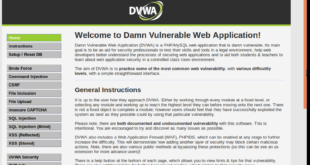Most of web application security vulnerabilities, leverage user input in ways that were not initially intended by their developer(s). Password Reset Poisoning is one such vulnerability, that leverages commonly unthought of headers, such as the Host header seen in an HTTP request: GET https://example.com/reset.php?email=foo@bar.com HTTP/1.1 Host: evilhost.com Notice the difference …
Read More »Identify website technologies with WhatWeb
WhatWeb identifies websites. Its goal is to answer the question, “What is that Website?”. WhatWeb recognises web technologies including content management systems (CMS), blogging platforms, statistic/analytics packages, JavaScript libraries, web servers, and embedded devices. WhatWeb has over 1700 plugins, each to recognise something different. WhatWeb also identifies version numbers, email …
Read More »Automatically crack WiFi password with besside-ng
besside-ng is a tool like Wesside-ng but it support also WPA encryption. It will automatically crack all the WEP networks in range and log the WPA handshakes. WPA handshakes captured can be uploaded to the online cracking service at Darkircop.org (Besside-ng Companion) to attempt to get the password and where …
Read More »Setting up Damn Vulnerable Web Application (DVWA) – Pentesting Lab
Damn Vulnerable Web App (DVWA) is a PHP/MySQL web application that is damn vulnerable. Its main goals are to be an aid for security professionals to test their skills and tools in a legal environment, help web developers better understand the processes of securing web applications and aid teachers/students to …
Read More »SecLists – Security Tester’s Companion
SecLists is the security tester’s companion. It’s a collection of multiple types of lists used during security assessments, collected in one place. List types include usernames, passwords, URLs, sensitive data patterns, fuzzing payloads, web shells, and many more. The goal is to enable a security tester to pull this repo …
Read More » blackMORE Ops Learn one trick a day ….
blackMORE Ops Learn one trick a day ….



